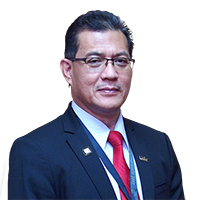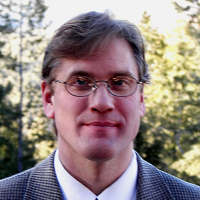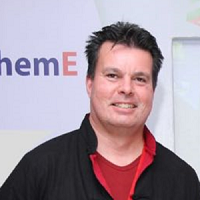Keynote Speaker
| Keynote Speaker 1 | ||
|---|---|---|
 Prof. Dr. Hj. Khudzir Hj. Ismail Rector, UiTM Perlis Branch |
Currently holding a post as Rector of UiTM Perlis Branch, Prof. Khudzir is a Professor in the field of Chemical Technology. He received his PhD from University of Strathclyde, United Kingdom, in which his area of research was nominated as the best in the area of conversion chemistry by the NATO-Advanced Study Institute (ASI). Among his notable achievement in the research field is when his work on coal desulphurization gained recognition from both the government and private statuary bodies and won the Petronas Incentives Award in 1996 and gold medal in the Mindex-Innotex Exhibition that was held in Kuala Lumpur. Currently, his research interest includes pyrolysis and gasification studies of coal and biomass blends, supercritical extraction of biomass for production of clean bio-oil and biodiesel and development of highly porous activated carbon from biomass wastes. Presently, he has published more than 250 papers in the highly impact international and national journals. He was a member of Natural Resources and Environment under Japan Society for Promotion of Science (JSPS)-Vice Chancellor Council (VCC), and has been invited as a ‘visiting scientist’ at Chemical Engineering Department and Energy Department in Kyoto University, Japan. Further, he has been appointed as paper reviewer for the journal of Energy, Fuels, Renewable Energy and Fuel Processing Technology under Elsevier. Topic: The prospect on Renewable Energy Development in Malaysia |
|
| Keynote Speaker 2 | ||
 Prof. James L. Maxwell Director of Engineering Research, Engineering Dept., La Trobe University |
Prof. Maxwell's research interests include the development of novel fibres, advanced composites, hierarchical materials, and self-organizing systems--where possible, employing naturally-sourced/sustainable materials. His interests also include the synthesis, structure, and properties of materials under extreme conditions, e.g. ultra-short time-scales and extreme pressures. His laboratory develops novel processes, e.g. hyperbaric-pressure laser chemical vapour deposition, ultra-high pressure diamond anvil cells, pulsed power material synthesis, & compact X-ray sources. He also conducts research and develops instruments for high-energy observational astrophysics/space science. Prof. Maxwell conducts basic and applied research, writes patents, and develops novel intellectual property. An experimentalist at heart, he enjoys developing advanced interdisciplinary experimental systems and production prototypes for science, industry, and economic development. Currently he teaches advanced graduate-level advanced materials, nanotechnology, and nano/micro engineering subjects. Topic: A Review of Hyperbaric Laser Chemical Vapor Deposition for Next Generation 3-D printing of Three-dimensional Microstructures and Devices |
|
| Keynote Speaker 3 | ||
 Prof. Lee D. Wilson Department of Chemistry, University of Saskatchewan |
Professor Lee D. Wilson, Ph.D finished his Bachelor degree from the University of Winnipeg in 1992 and he was awarded his Ph.D from the University of Saskatchewan in 1998. He was NSERC Postdoctoral Visiting Fellow, National Research Council of Canada, Steacie Institute for Molecular Sciences – Functional Materials Program, Ottawa, in 1999-2003. He is currently affiliated with the Department of Chemistry at the University of Saskatchewan as a Professor. His research interests covers diverse topics in physical chemistry, materials science and environmental chemistry. Ongoing research activities are focused on the development of new types of materials and studies related to adsorption and interfacial phenomena related to water science and technology. The Wilson research group is developing new forms sustainable biomaterials for the controlled removal of contaminants from water and chemical separations using methods based on green chemistry. This research contributes significantly to the science and technology of “smart” adsorbent materials that relate to issues relevant to water and energy security. Topic: Biopolymer composites and studies of their adsorption properties |
|
